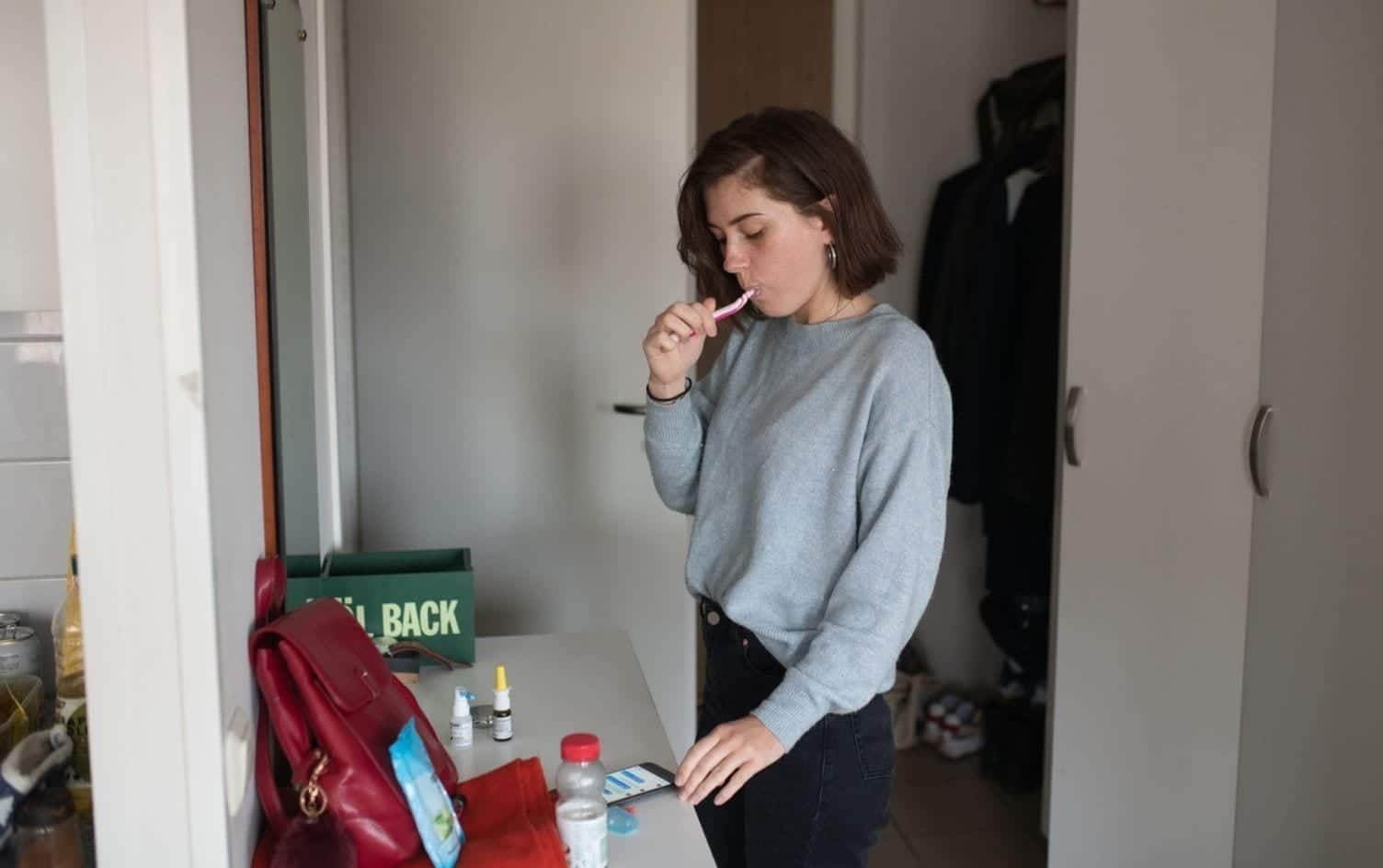When done right, snacking can help you feel satiated between meals. However, mindless snacking throughout the day can easily derail your weight-loss efforts. One simple habit that might curb your grazing: Brushing your teeth.
Researchers haven’t found a connection between tooth brushing and appetite control or weight loss, but anecdotally, it’s a technique that works for some people. “I haven’t seen any studies showing tooth brushing impacts appetite, but I understand why one might use it as a strategy to reinforce mindful eating,” says Tricia Quartey-Sagaille, DMD, an American Dental Association spokesperson and Brooklyn-based dentist.
Chewing sugar-free gum, however, may have positive effects on your appetite. Some research has shown people who chewed gum for an hour after eating breakfast consumed fewer calories at lunch than they did on days when they didn’t chew gum.
Not only can proper dental hygiene help you cut back on mindless snacking, but it can also help your heart health; gum disease is linked to high blood pressure and cardiovascular disease.
IT CAN MAKE SNACKING LESS APPEALING
Some people find when they try to eat certain foods too soon after brushing their teeth, the mingling of the minty flavor from the toothpaste combined with other flavors (such as orange juice) tastes horrible. In this way, brushing after a meal can act as a natural deterrent to continued eating.
“There’s no research that shows brushing your teeth has any effect on the hormones that regulate a person’s appetite,” says Lauri Wright, PhD, RDN, national spokesperson for the Academy of Nutrition and Dietetics and associate professor of nutrition and dietetics at the University of North Florida. “[But] toothpaste can temporarily affect taste buds, which can make eating less appealing post-meal.” For example, “people with the clear retainers for teeth straightening lost weight initially because every time they ate or drank, they had to brush their teeth,” says Wright. “That extra effort dissuaded them from snacking when they weren’t truly hungry.”
IT CAN PREVENT MINDLESS EATING
You may not actually be hungry when you reach for a snack between meals. “People often eat due to external cues, such as TV-watching or boredom, rather than internal cues,” says Wright. “There is absolutely no harm in seeing if brushing your teeth breaks up that sequence of mindless eating and helps you check your internal hunger cues.”
Over time, fewer calories from mindless snacking can make a big difference on your waistline. In fact, some research shows people who brush their teeth three or more times per day are less likely to be obese than people who only brush up to one time per day.
IT CAN HELP YOU STACK HABITS
If brushing your teeth becomes a signal to stop eating after a meal, it serves as a healthy habit that can be reinforced or stacked with another healthy habit. For example, since you won’t be tempted to reach for a snack, try drinking a glass of water after brushing your teeth. Eventually, you can also add on additional healthy habits, such as logging your meal in an app like MyFitnessPal. Stacking habits allows small, seemingly insignificant tweaks to your lifestyle to add up quickly, yielding big weight-loss dividends.
DO’S AND DON’TS OF BRUSHING AFTER EATING
If you’re hoping to curtail a snacking habit, you may be inclined to brush immediately after meals. However, depending on what you eat or drink, this decision may be bad for your teeth.
If you aren’t eating or drinking something acidic — like citrus fruits, coffee, tea, lemonade or soda — you should be able to brush your teeth afterward without a problem. However, some research suggests consuming acidic foods or beverages erodes tooth enamel. Brushing your teeth shortly after consuming something acidic can further wear down the enamel, contributing to tooth decay over time.
“It’s a good idea to brush your teeth before eating an acidic food and to drink a glass of water when you’re finished eating an acidic food to wash away the acids,” says Quartey-Sagaille. “If you prefer to brush after having acidic foods, the ADA suggests waiting 60 minutes after eating before you brush.”
If you eat or drink something acidic and you’re inclined to brush your teeth right away as a signal to yourself that you should stop eating, consider drinking water or chewing sugar-free gum for an hour before brushing, to preserve your tooth enamel, suggests Quartey-Sagaille.
THE BOTTOM LINE
Brushing your teeth after a meal can help prevent mindless eating and act as a cue to signal other healthy habits, thus contributing to weight loss in the long-term. While you should wait to brush your teeth for an hour after consuming acidic foods, you can play around with the timing and find what works best for you. For instance, “if you tend to snack at night, try moving your evening brushing time up a bit,” says Quartey-Sagaille. “A clean mouth just might motivate you to say no to that midnight snack.”
Unlock an experience that’s like having a dietitian, trainer and coach — right at your fingertips. Go Premium for expert guidance and exclusive tools that will help you reach your personal health goals.




